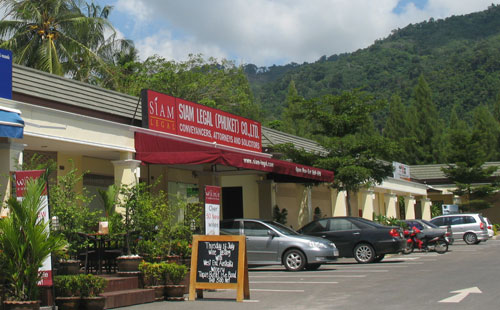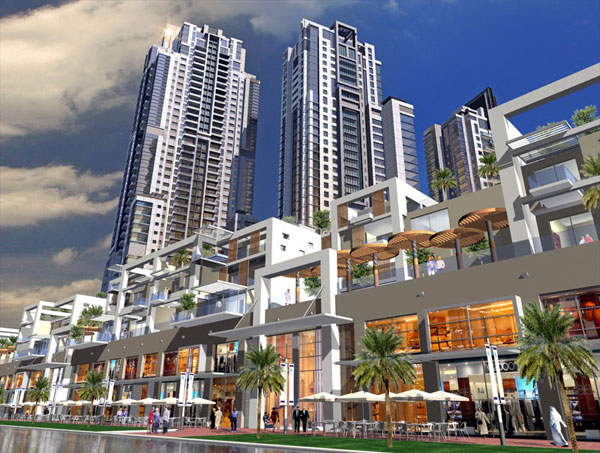The property title transfer process in Thailand varies based on region and individual circumstances. Consultation with legal professionals specializing in Thai real estate is advisable.
Documents that support the transfer include the title deed (Chanote) and sales and purchase agreement. Buyers are responsible for paying various fees and taxes, including transfer fees, specific business tax, stamp duty, and withholding tax.
This is the most secure type of land title deed in Thailand. It gives the document holder full ownership rights to deal with the property as they please and to pass it on to heirs. It will typically be issued to a person who owns a condo in a condominium complex but it can be transferred to anyone provided that the title is clear of all issues and encumbrances.
The other more common title deed is Nor Sor Sam (3) Gor, this has a red gurada on and it can also be upgraded to Chanote. It shows that the boundaries of the land have been surveyed but it is not a fully accurate title deed with satellite measured corners. This title can still be used to transfer ownership between people but it is not as secure as the Chanote deed. We do not recommend this for foreigners buying land. However a good property lawyer can help you with this.
While foreigners can own a condominium, they are limited when it comes to buying freehold land. A condominium deed is a document that proves ownership of a specific condo unit within a building and the ownership of a small share in the property the building sits on. The holder can rent their condo, sell it, or leave it to their heirs.
The other main title documents in Thailand are Nor Sor 3 Gor and Chanote. Unlike Nor Sor 3, a Chanote designates full ownership and accurately surveyed GPS plotted pieces of land that are marked by concrete or metal survey markers set in the ground. In addition, the title is verified by the land department and legal acts regarding the piece of land do not need to be published.
It is important to understand the differences between these titles because a person who owns a Nor Sor 3 Gor can claim possession rights while only a Chanote owner can possess and sell their land. This difference is particularly relevant for people who want to buy luxury properties in Thailand because only a Chanote will allow them to use the property as they wish while also passing it onto their heirs.
A Chanote deed is the most dependable type of land title in Thailand. The document verifies ownership and provides details of rights on the property, which have been certified by the government survey. This type of title also includes restrictions on sale or transfer for a certain number of years.
Foreign nationals may acquire a chanote deed if they are a Thai registered company. However, the process is extremely complex and requires extensive due diligence from a qualified property lawyer.
This title deed grants full ownership rights to a plot of land that is precisely surveyed and measured. This type of deed can be sold, transferred, leased, or burdened with a mortgage. However, the holder does not have the right to register other rights like usufruct. The document also provides a guarantee that the rights are not disputed by others. This type of land title is not as common and therefore commands a premium in the market.
This is the highest form of land title deed and grants full rights to the holder. It will clearly indicate the plot boundaries and any registered encumbrances. This type of title is very sought after but also the most difficult to find as only land that meets specific criteria can be issued with this deed. For example, the land area that is mentioned on the deed must be precisely surveyed and accounted for or else you may end up with a discrepancy between the actual land that you own and what is shown on your property survey.
SK1 is a notification of possession deed and does not grant true ownership rights. Usually it will not even allow you to build on the property but at the very least it gives you the right to occupy and use it as you see fit. This type of land title can be upgraded to Nor Sor 3 Gor but this is often a money pit and requires extensive legal paperwork.
Need a lawyer in Phuket for assistance with your marriage, property lease, divorce or business registration. Look no further than Law Firm in Phuket. With offices in all the main cities of Thailand we at Law Firm Phuket can assist you with all your needs all from one office. No need for an attorney in Bangkok or Isaan, with multiple offices in Thailand you only need to walk into one for assistance anywhere in Thailand. Call us today for more assistance.
Offices located in Thailand
BANGKOK
Law Firm (Thailand) Co., Ltd.
|
Two Pacific Place Building, 142 Sukhumvit Road, Klongtoey, Bangkok 10110 Thailand
|
|
BTS Station Nana Exit 2
|
PHUKET
Law Firm (Phuket) Co., Ltd.
|
Moo 5, Bangtao Place T. Cherngtalay, A. Thalang, Phuket 83110
|
CHIANG MAI
Law Firm (Chiang Mai) Co., Ltd.
|
Curve Mall, Chang Klan Road, Muang, Chiang Mai 50100
|
PATTAYA
Law Firm (Thailand) Co, Ltd.
|
Moo 10 Nongprue, Banglamung, Chonburi 20150
|
If you are visiting Thailand and you want to stay for longer than 30 days then there are a number of visa options available to you in Thailand. We have listed the most common options for those who want to buy or live in Phuket and need to correct visa.
If you are wanting to operate a business in Phuket then you need to h ave a work permit. You can obtain a work permit in Phuket however you will need to have the correct visa for this. Normally you need to have a business visa for a work permit application or a marriage visa which will then be used to apply for the work permit. The Thai business visa is issued outside of Thailand and is valid for 3 months once you enter Thailand. There is also a multiple entry business visa which is normally for 1 year. With this visa you need to do a visa run in Thailand every 3 months. In other words, you leave the country by crossing the border and then returning the same day to activate the next 3 months on your visa.
ave a work permit. You can obtain a work permit in Phuket however you will need to have the correct visa for this. Normally you need to have a business visa for a work permit application or a marriage visa which will then be used to apply for the work permit. The Thai business visa is issued outside of Thailand and is valid for 3 months once you enter Thailand. There is also a multiple entry business visa which is normally for 1 year. With this visa you need to do a visa run in Thailand every 3 months. In other words, you leave the country by crossing the border and then returning the same day to activate the next 3 months on your visa.
If you are married to a Thailand citizen then you can apply for a Thai Marriage Visa. This visa allows you to live in Thailand for 3 months once you enter Thailand. You can also extend this visa in Thailand to a 1 year visa if you can show an income of 40,000 Baht per month. This visa can also be used for applying for a work permit in Thailand. Speak to our attorneys in Phuket for more information about your visa options in Thailand.
The tourist visa is only valid for 60 days however this can be extended in Thailand for an additional 30 days if you want to stay in Thailand for longer. Speak to our attorneys about your tourist visa for Thailand. If you are going to cross in Thailand from another country via a land border then they will only give you 15 days stay in Thailand. If you plan on backpacking in Thailand then obtain your Thai visa before you arrive in Asia.
Speak to us today toll-free or online about your business visa, marriage visa or tourist visa before you arrive in Thailand. Call us today!
 If you are going to be starting a business in Thailand then you will need to have a work permit to operate the business. Certain employment positions are not allowed to be held by foreigners in Thailand. The list of prohibited professions are as follows and listed on this website.
If you are going to be starting a business in Thailand then you will need to have a work permit to operate the business. Certain employment positions are not allowed to be held by foreigners in Thailand. The list of prohibited professions are as follows and listed on this website.
Recent law changes in Thailand had added high penalties for both the employers and individuals working illegally in Thailand. Before you start working in Thailand you need to apply and have the work permit in hand. some are of the belief that the business visa is a work visa and allows you to work in Thailand. This is incorrect. Speak to our attorneys in Phuket about obtaining a work permit for your business in Phuket if you are starting a business. The work permit application can take anywhere from 1 week to 3 weeks to be issued. Note that working is prohibited in Thailand until such time that the work permit has been issued.
The following documents are needed to apply for a Thai work permit:
Call us today toll-free for more advice about starting a business in Thailand and how best to obtain a work permit in Thailand for your business. Walk into any of our offices in Thailand for more information and assistance.
 Leasing property in Thailand normally comes in 2 forms. The first being informal where people normally agree to the monthly rental and provide 1 months deposit or 3 months rental deposit and this runs on a month to month bases. Others are long term agreements and these normally need to be registered against the property.
Leasing property in Thailand normally comes in 2 forms. The first being informal where people normally agree to the monthly rental and provide 1 months deposit or 3 months rental deposit and this runs on a month to month bases. Others are long term agreements and these normally need to be registered against the property.
Foreigners in Thailand are allowed to lease immovable property such as leasing a house or villa and this lease if it is over 10 years needs to be registered on the Title Deed as the lease owner at the Land Office in Thailand. Any long term property in lease Thailand must be registered with the Land Department. If you are not buying property as a foreigner then you can obtain a 100% interest in a property lease in Thailand. The maximum lease term available in Thailand unlike Hong Kong is 30 years. This normally comes with an option to renew for an additional 30 years or to buy the property after the lease agreement. Each lease renewal just as before must be registered at the Land Department against the Title Deed and for each new lease registration government taxes will be levied. Under certain circumstances (see the BOI rules), land or property for industrial or commercial purposes may be leased for up to 50 years by a foreigner.
There are a number of obstacles in Thailand facing foreigners and expats who wish to buy land or even purchase real estate in Thailand and therefore most expats in Thailand choose to lease property being that most rent a condo on a 30 year leasehold with an option for extension or purchase. Remember that a lease stays valid when land or property is sold. If you are moving to Phuket then speak to our property attorneys in Phuket for more information and the property and real estate options available to you in Thailand. Call us today toll-free or walk into our offices in Phuket or anywhere in Thailand.